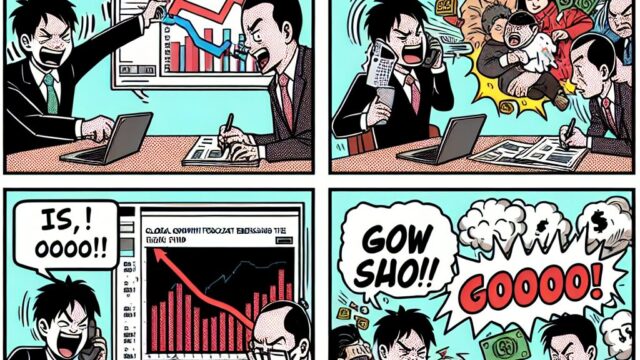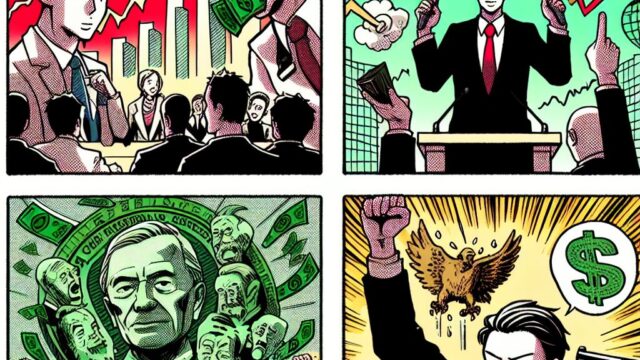🎧 Audio
📖 Script
At the beginning of this year, the U.S. dollar experienced one of its weakest starts in over fifty years. This decline has sparked discussions among economists and experts worldwide, trying to understand the reasons behind it. According to Kenneth Rogoff, a well-known economics professor at Harvard University, the policies of President Trump have played a significant role in this downturn.
The U.S. dollar is a crucial currency in the global market, often used as a benchmark for international trade. When its value declines, it impacts not only the U.S. economy but also economies around the world. For instance, when the dollar weakens, it can make U.S. exports cheaper and more competitive, but it can also increase the cost of imports and lead to inflation.
Professor Rogoff points out that President Trump’s policies, including trade tariffs and a strong focus on America-first strategies, have contributed to the dollar’s decline. These policies have created uncertainty in the market, leading investors to look elsewhere. Moreover, the Federal Reserve’s interest rate decisions also play a part. Lower interest rates make holding dollars less attractive, prompting investors to seek higher returns in other currencies.
The situation is complex, as many factors influence currency values. Political decisions, economic indicators, and market sentiments all intertwine to affect the dollar’s strength. The U.S. government and the Federal Reserve play critical roles in managing these influences, aiming to balance domestic economic growth with global market stability.
For everyday people, a weaker dollar can mean higher prices for imported goods and travel, but it can also benefit American businesses that export products. Understanding these dynamics helps individuals and businesses make informed financial decisions.
📝 Vocabulary
- decline: a decrease or reduction in strength or value
- benchmark: a standard or point of reference against which things may be compared
- tariffs: taxes imposed on imported goods and services
- inflation: a general increase in prices and fall in the purchasing value of money
- uncertainty: a situation where the outcome or future is not known
✏️ Grammar Point
Present Simple Tense – “The U.S. dollar is a crucial currency in the global market, often used as a benchmark for international trade.”
❓ Listening Questions
- True/False: The U.S. dollar’s decline this year is the worst in over fifty years.
- MCQ: According to Kenneth Rogoff, what has contributed to the dollar’s decline?
a) Global warming
b) President Trump’s policies
c) Natural disasters
d) Technological innovations - MCQ: What effect does a weaker dollar have on U.S. exports?
a) Makes them more expensive
b) Makes them less competitive
c) Makes them cheaper
d) Has no effect
-
True
False -
a)
b)
c)
d) -
a)
b)
c)
d)
📚 Reading Questions
- Who is Kenneth Rogoff, and what does he say about the U.S. dollar’s decline?
- Why might President Trump’s policies lead to a weaker dollar, according to the text?
- What does the word “inflation” mean in the context of the script?
-
🗝️ 模範解答を表示
4. Kenneth Rogoff is an economics professor at Harvard University, who says President Trump’s policies are accelerating the dollar’s decline.
-
🗝️ 模範解答を表示
5. President Trump’s trade tariffs and America-first strategies create market uncertainty, leading to a weaker dollar.
-
🗝️ 模範解答を表示
6. Inflation refers to a general increase in prices and fall in the purchasing value of money.
🇯🇵 日本語での経済ニュース解説
Source: https://www.npr.org/2025/07/04/nx-s1-5453739/us-dollar-economy-harvard-university-kenneth-rogoff
<script>
function checkListening() {
const ans = {
lq1: "1. True",
lq2: "2. b) President Trump's policies",
lq3: "3. c) Makes them cheaper"
};
const user1 = document.querySelector("input[name='lq1']:checked")?.value;
const user2 = document.querySelector("input[name='lq2']:checked");
const user3 = document.querySelector("input[name='lq3']:checked");
let result = "";
result += "1. " + (user1 === ans.lq1 ? "✅ Correct" : "❌ Incorrect (Correct: " + ans.lq1 + ")") + "<br>";
result += "2. " + (user2?.value === ans.lq2 ? "✅ Correct" : "❌ Incorrect (Correct: " + ans.lq2 + ")") + "<br>";
result += "3. " + (user3?.value === ans.lq3 ? "✅ Correct" : "❌ Incorrect (Correct: " + ans.lq3 + ")") + "<br>";
document.getElementById("lq-feedback").innerHTML = result;
}
</script>








